Essays
Essays
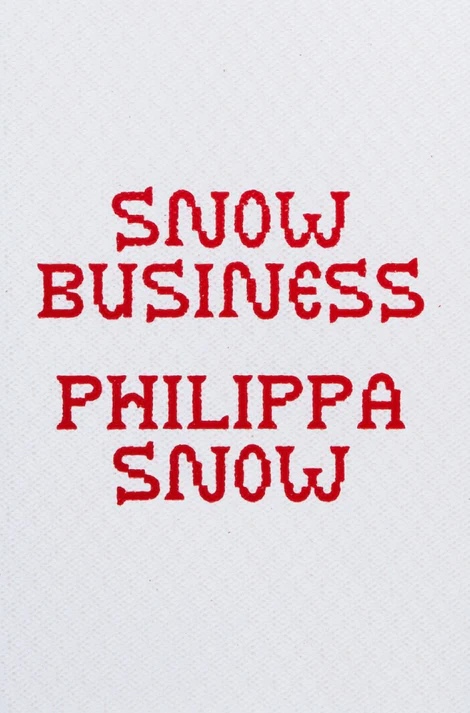
Snow Business
A collection of Philippa Snow's most celebrated writings, articulating with majestic precision the thorny, unbreakable bond between mass media, popular culture and art.
Snow Business marks Philippa Snow's emergence as one of the twenty-first century's greatest cultural critics. From the 2000s into the 2010s, reality television and "second-screen media," designed to play in the background while we look at phones, have proliferated, inaugurating the dumbient age. Celebrities have never been more ordinary; there have never been so many ordinary people who are celebrities.
A collection of her writing from the last half-decade, Snow Business articulates with majestic precision the thorny, unbreakable bond between mass media, popular culture and art. The memoirs of Pamela Anderson and the Kardashian sisters are just as worthy exemplars of "autofiction" as the writing of Olivia Laing and Annie Ernaux; Spring Breakers has succeeded in updating The Great Gatsby; and we are still afraid of Francis Bacon.
Snow has no interest in distinctions of high and low culture. If masterpieces of fiction, painting and cinema reflect back to us some vital and mysterious part of ourselves, mass-distributed popular culture does the same thing, and often with greater clarity and violence—if we are only brave enough to look. Fortunately, Snow does the looking for us.
Alongside her essays are also works of fiction, vignettes whose protagonists are actors, singers, child stars. These are strange, sometimes conspiratorial, and often nightmarish. Just as Snow Business can describe culture with stunning clarity, it can inhabit culture's moving parts, making it again something indescribable, a sensuous vision, a complete fever dream.
Philippa Snow is a writer whose work has redefined contemporary criticism through her analysis of popular culture, art, and media. Her work regularly appears in the Los Angeles Review of Books, ArtReview, The New Republic, The Nation, The White Review, and the Financial Times. She is the author of Which As You Know Means Violence (Repeater, 2022), Trophy Lives (Mack, 2024), and It's Terrible the Things I Have to Do to Be Me (Virago, 2025). Through her keen examination of reality television, celebrity culture, and high art, Snow illuminates the increasingly blurred boundaries between popular entertainment and artistic expression in the twenty-first century.
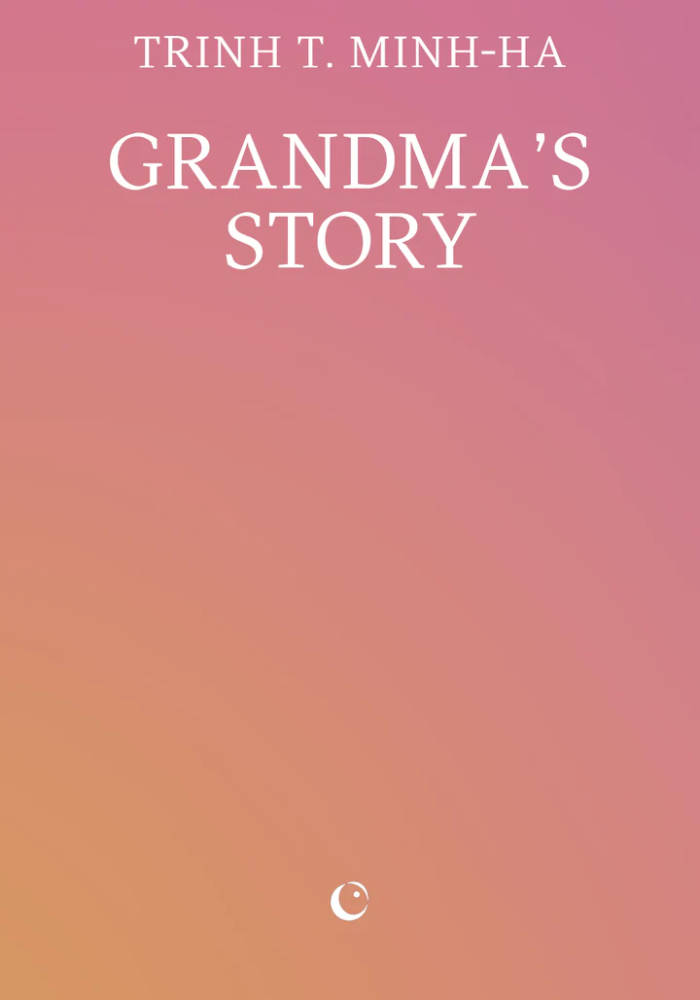
Grandma’s Story
‘May my story be beautiful and unwind like a long thread . . .’, she recites as she begins her story.
The storyteller is the living memory of her time: at once an oracle, weaver, healer, warrior, witch, protectress, teacher and great mother. Her powers are to do with passing on – not only the stories but transmission itself: ‘what grandma began, granddaughter completes and passes on to be further completed.’
In contrast to the idea that a story is ‘just a story’, pioneering postcolonial feminist theorist and filmmaker Trinh T. Minh-ha recodes ideas about truth and fantasy to tell a different story about power, civilisation, history, medicine and magic. Grandma’s Story shows how creative speech is connected to women’s powers of enchantment, drawing upon and speaking with storytellers including Theresa Hak Kyung Cha, Clarice Lispector, Maxine Hong Kingston, Leslie Marmon Silko and Zora Neale Hurston – all who may be known as ‘she who breaks open the spell’.
The story as a cure and a protection is at once musical, historical, poetical, ethical, educational, magical, and religious.
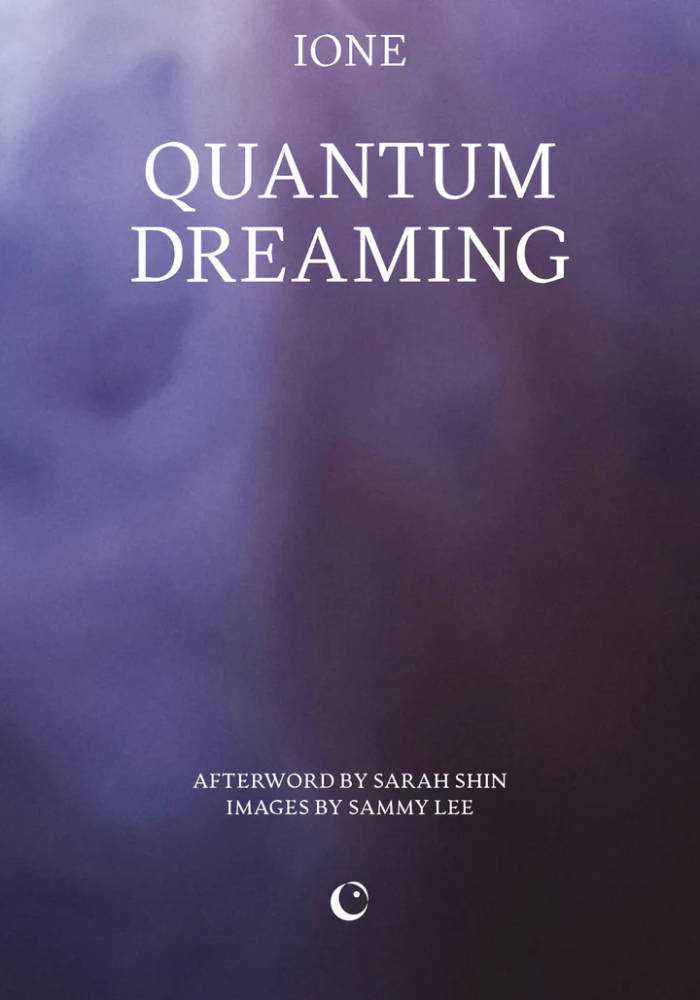
Quantum Dreaming
IONE is a Dream Keeper: a facilitator of dreams. Sharing this intimate part of our being, she believes, can be the start of new ways of being with one another.
Exploring the reality of the dream and the dream of reality over many decades has led IONE to appreciate the quantum nature of dreams. Weaving science and dream traditions from around the world together with her own memories and the dreams of her friends and community members, Quantum Dreaming shows that as we start practising awareness, our consciousness also deepens.
IONE and Pauline Oliveros’s shared vision of a harmonious, self-sustaining network of artists and dreamers led to the founding of the Deep Listening Institute. Quantum Dreaming similarly seeks a radical shift in our collective consciousness, across all states of dreaming and waking.
Afterword by Sarah Shin
Images by Sammy Lee

Par-delà étrange et familier
Dans cet ouvrage, malheureusement son dernier, Mark Fisher revisite des artefacts culturels familiers afin de cartographier les variétés de l’étrange dont ils sont porteurs. Longtemps sensible aux dimensions bizarre et omineuse qu’il devinait, sans les nommer, entre autres dans les œuvres de Lovecraft, les films de David Lynch ou les albums de The Fall, M. Fisher tente ici la synthèse essentielle d’un questionnement qui l’avait hanté, jusqu’à ce livre.
Avec son regard si particulier, celui du critique culturel tout à la fois pop et moderniste, puisant aux sources de la psychanalyse et du marxisme, Fisher se penche sur des objets sensibles pour y saisir les rapports entre présence et absence, entre ce qui devrait être mais n’est pas, ce qui ne devrait pas se présenter mais survient. C’est en compagnie de ces spectres — du titre d’un autre ouvrage — que nous sommes invités à voyager, pour questionner les formes mêmes de nos existences sociales, jusqu’aux frontières de l’étrange.

Suites décoloniales
Cet ouvrage se compose de « leçons » pour tenter d’anticiper les contre-feux institutionnels et se confronter aux effets qui accompagnent l’offre amoureuse d’une décolonisation de façade. Essayer de comprendre pourquoi ces stratégies trouvent des prises particulières dans le contexte français et montrer comment elles composent le chemin le plus sûr pour la poursuite – et même la nouvelle peau – de l’économie néolibérale.
Olivier Marbœuf est auteur, poète, performeur. Il a été directeur artistique du centre d’art l’Espace Khiasma. À travers ses multiples expériences et sa connaissance des milieux artistiques et culturels, il analyse les chantiers actuels de décolonisation de ces espaces.

Designing History - Documents and the Design Imperative to Immutability
Moving beyond the usual genres of form in graphic design’s canonical history, ‘Designing History’ proposes a model centred on bureaucratic instruments of identity, ownership, value, and permission: money, passports, certificates, property deeds, etc. It considers the implications of a design history of the document, where the designer shifts from being a practitioner of conventional design histories to become subject and agency of bureaucratic authority. The book is a revised edition of ‘Immutable: Designing History’ (2022) and includes an extended essay that contextualizes the project as a remapping of graphic design’s historical, pedagogical, and practical assumptions.

The Contemporary Condition - Contemporaneity in Embodied Data Practices
Cornelia Sollfrank, Felix Stalder
What parallels are there between a human pranayama practitioner and a migratory bird in heavily datafied environments? In Contemporaneity in Embodied Data Practices, two artistic field studies provide the starting point for a dialogical reflection on the entangling of diverse temporalities in body-related, datafied, and experiential practices. Shifting through biological, historical, and technological rhythms, Cornelia Sollfrank and Felix Stalder unfold their respective more-than-human frames of reference and arrive at specific forms of agency in the contemporary moment. Published in partnership with the Centre for Research in Artistic Practice under Contemporary Conditions at Aarhus University.

We, the Heartbroken
What do we do when the world breaks our hearts? Racial capitalism in the age of pandemic continues to crush ever more lives and spirits. Yet, we are told repeatedly to master, to overcome, to be resilient. Beneath this fragile pretence of coping, many of us have grown used to living with profound and fathomless sorrow.
In graceful prose, Gargi Bhattacharyya navigates collective grief and how it mingles with personal tragedy. Alongside love and joy, perhaps grief is what makes us human―and while its pain scrapes our wounds, its presence can help us renounce that which exists and build anew.
Heartbreak is the class consciousness of our times. So, it is up to us, the heartbroken, to learn again to heal—and remake the world.
"We, the Heartbroken reckons with loss and grief’s fullness and its surprising abilities to make us alive to one another … entranced by one another again. We are called upon to do this work, to allow for heartbreak to engender capaciousness and collectivity."
— Full Stop
Gargi Bhattacharyya lives and works in London. Their work includes writing on racism, racial capitalism, austerity and war.

To Be Determined: Photography and the Future
To Be Determined: Photography and the Future proposes a radical concept: that the photograph is as much an object of the future as it is of the past. Exploring a familiar medium with new eyes, this series of short essays asserts that photographic technologies are geared towards a world to come, not a world that has been.
The book proposes that artists and photographers who question photography’s capacities – to transform our relationship to time, rewire our perception, and describe our encounters with technology – can change our perception of our own agency and our capacity to see, think and act.

Image Text Music
In Image Text Music, writer and editor Catherine Taylor explores the place where the visual meets the verbal. Taylor riffs on and subverts Roland Barthes’ classic 1977 essay collection Image Music Text using his title as playful points of departure for her thinking about the nature of image-text works and the music that might be made at their intersection.
Taylor rejects overarching statements about medium or genre in favour of observations of the particular. In the process, she reveals ways of reading that are at once erotic and political, familiar and disorienting. The book asks: as we shuttle between linguistic and visual modes of meaning-making, what is the purpose of reinventing forms if not to reinvent ways of living?

Hello Chaos, a Love Story
Kitty, the cute and mute cartoon protagonist of Hello Chaos, a Love Story: The Disorder of Seeing and Being Seen, embarks on an ill-fated endeavour to win the eyes of her estranged counterpart Mickey in this genre-defying book by Charlie Engman. Through a cat-and-mouse narrative of unrequited attention-seeking, Engman unravels the contradictions of contemporary visual culture as Kitty and Mickey struggle to find each other and themselves amidst the chaos of imagery, technology, and mass production. Extensively illustrated with a wide range of images both original and found, this book attempts to tackle the beautiful, horny, horrible vulnerability of looking and being perceived.

Pirate Care: Acts Against the Criminalization of Solidarity
Tomislav Medak, Marcell Mars and 1 more
In many places around the world, the freedom to simply care for one another is under attack by the powerful, and acts of solidarity are being made illegal. In a moment of struggle defined by the rollback of social welfare programs, the criminalisation of migration, and the right-wing clampdown on bodily autonomy, radical networks of care are fighting back.
From volunteer rescue boats in the Mediterranean to underground labs for preparing gender-affirming hormones, from the sharing of copyrighted health knowledge to the provision of abortion and contraception, people are reclaiming the means to care for one another in defiance of a system that devalues and exploits the labour of care.
Against atomised despair, Pirate Care shows that fighting back isn't only about legal and legislative changes but also about organizing, direct action, and disobedient care.

To See In the Dark: Palestine and Visual Activism Since October 7
To see Palestine is to see the world. Since October 7th 2023, the forces of racial capitalism, settler colonialism and white supremacy have become all too visible in Israel's war on Gaza. Urban, networked Gazan youth have documented and shared their struggle with the world using social media strategies, derived from movements from Tahrir Square to Black Lives Matter.
In To See In The Dark, Nicholas Mirzoeff explores how these videos and photos transmitted and viewed outside Palestine, via platforms like Instagram and TikTok, enabled a dramatic switch in public opinion, leading to the global uprising against genocide.
In this groundbreaking analysis, he also connects the personal and the political via his own anti-Zionist Jewishness, weaving an autotheory of domestic, political and sexual violence. Through this exploration, he finds new collective anticolonial ways of seeing, combining online and embodied experiences.

Dysphoria Mundi: A Diary of Planetary Transition
A revolutionary book tracing the collapse of the paradigms that have organized the world for centuries.
In Dysphoria Mundi, Paul B. Preciado, best known for his 2013 cult classic Testo Junkie, has written a mutant text assembled from essays, philosophy, poetry, and autofiction that captures a moment of profound change and possibility. Rooted in the isolation of the COVID-19 pandemic, and taking account of the societal convulsions that have ensued, Preciado tries to make sense of our times from within the swirl of a revolutionary present moment.
The central thesis of this monumental work is that dysphoria, to be understood properly, should not be seen as a mental illness but rather as the condition that defines our times. Dysphoria is an abyss that separates a patriarchal, colonial, and capitalist order hurtling toward its end from a new way of being that, until now, has been seen as unproductive and abnormal but is in fact the way out of our current predicament.
With echoes of visionaries such as William S. Burroughs and Kathy Acker, Preciado’s theoretical writing is propelled by lyric power while providing us with a critical toolbox full of new concepts that can guide our thinking and our transition, cognitive emancipation, denormalization, disidentification, “electronic heroin,” digital coups, necro-kitsch. Dysphoria Mundi is Preciado’s most accessible and significant work to date, in which he makes sense of a world in ruins around us and maps a joyous, radical way forward.
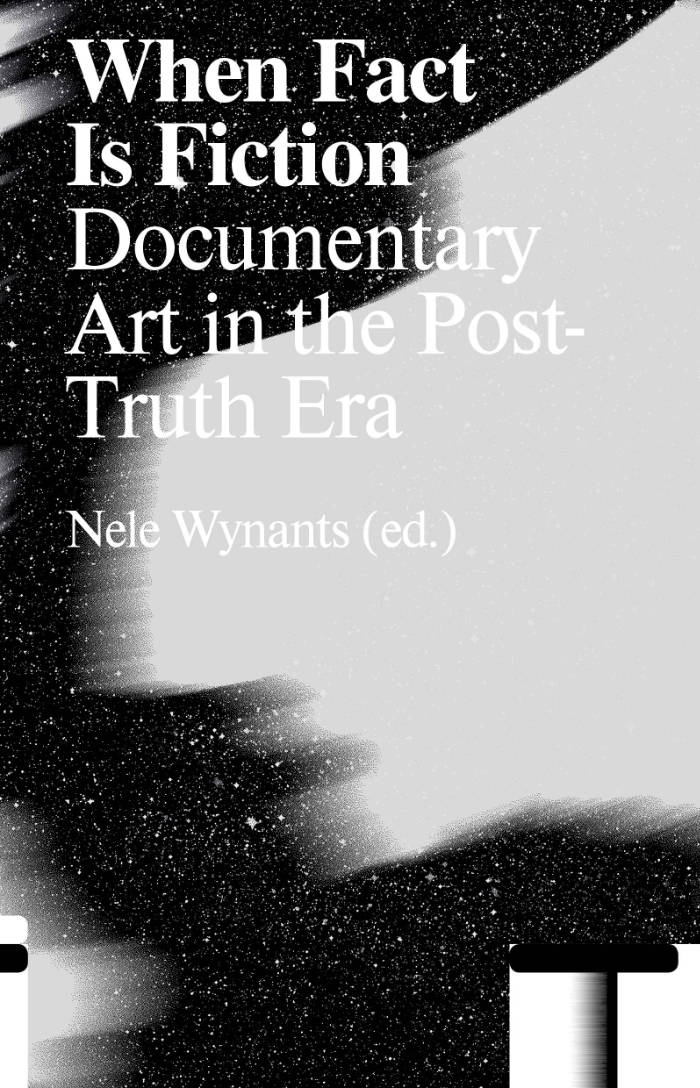
When Fact Is Fiction
What is the value of fiction at a time when fake news, alternative facts, and infotainment undermine the integrity of politics and media? This question is the common thread of When Fact Is Fiction. It brings together contributions by and about artists who probe the boundaries between fact and fiction. The ambiguous relationship between the documentary and the imaginary has been investigated and questioned within the arts for decades. The artists discussed in this volume deliberately blur the boundaries between what is generally known as ‘fiction’ and as ‘reality’. They share a fascination with the same problem: the impossible challenge of representing reality. Their artistic re-interpretation of oral and archival sources often has an explicit critical potential to rewrite history, rethink our present time or imagine possible futures.
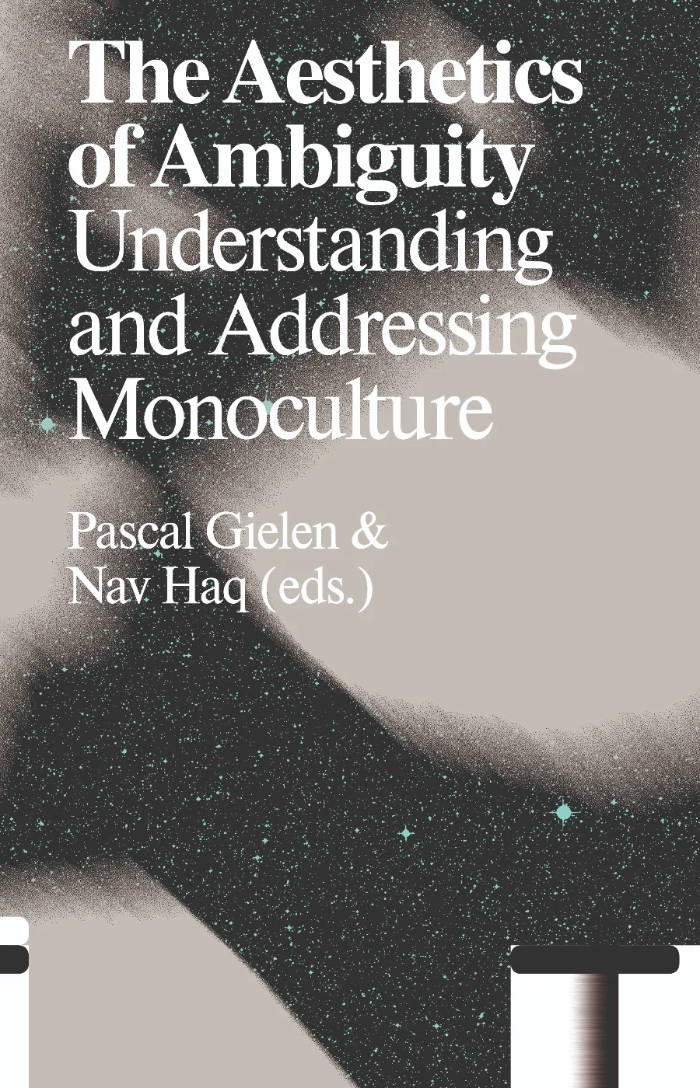
The Aesthetics of Ambiguity
In The Aesthetics of Ambiguity: Understanding and Addressing Monoculture Pascal Gielen and Nav Haq argue that multiculturalism is paradoxically based on monocultural thinking. The publication explores this paradox by exploring monoculture in a variety of contemporary contexts. The book sets out to analyse monoculture using a multifaceted approach, by bringing together historical, social, cultural and ideological perspectives, using the dual role of art as tool for reconciliation and division in societies. The Aesthetics of Ambiguity gives stage to artists, thinkers and institutional practices who dare to play with the rules of a broader society and thus generate ambiguity ‘at large’. The book represents a quest for (more) ambiguity in order to avoid rigid borders or black-and-white polarities between cultures, as well as between practices of art and scientific thinking. By doing so, the artists, activists and researchers featured in this book plea for a politics and aesthetics of ambiguity to deal with the complexity of our living together on Earth.
Contributors: Paolo S.H. Favero, Pascal Gielen, Christine Greiner, Max Haiven, Nav Haq, Hedwig Houben, Iman Issa, Bojana Piškur, Public Movement, Jonas Staal, Mi You and Tirdad Zolghadr
Design: Metahaven

Royal Academy of Fine Arts Antwerp
Know how to now it’s that you’re learning the segments That aren’t sentences at all and converse with each other
This book is the result of the symposium Know how to now it’s that you’re learning the segments / That aren’t sentences at all and converse with each other which took place at the Royal Academy of Fine Arts Antwerp on 14–15 September 2023.
Published by Track Report as a result of Andrea di Serego Alighieri’s two-years research at ArchiVolt.
With contributions by Phil Baber, Chloe Chignell, Will Holder, Alice Notley, Andrea di Serego Alighieri, Nicola Masciandaro, Angela Xu, Snejanka Mihaylova, Paul Abbott, Mayra A. Rodríguez Castro

Delirious Verse
Delirious Verse presents the first English translation of a talk given by the Italian poet Amelia Rosselli in the early 1980s, in which she read aloud from and expanded upon her seminal essay “Metrical Spaces.” Drawing on intensive literary and musical studies, and shaped by her trilingual upbringing as a refugee from fascist Italy, Rosselli conceptualizes a new kind of poetic form: a graphic-prosodic “time-space” capable of containing “all possible imaginable rhythms.”
The book includes a new translation of “Metrical Spaces” by Jennifer Scappettone and an afterword by Andrea di Serego Alighieri.
Edited and translated by Andrea di Serego Alighieri and Phil Baber.
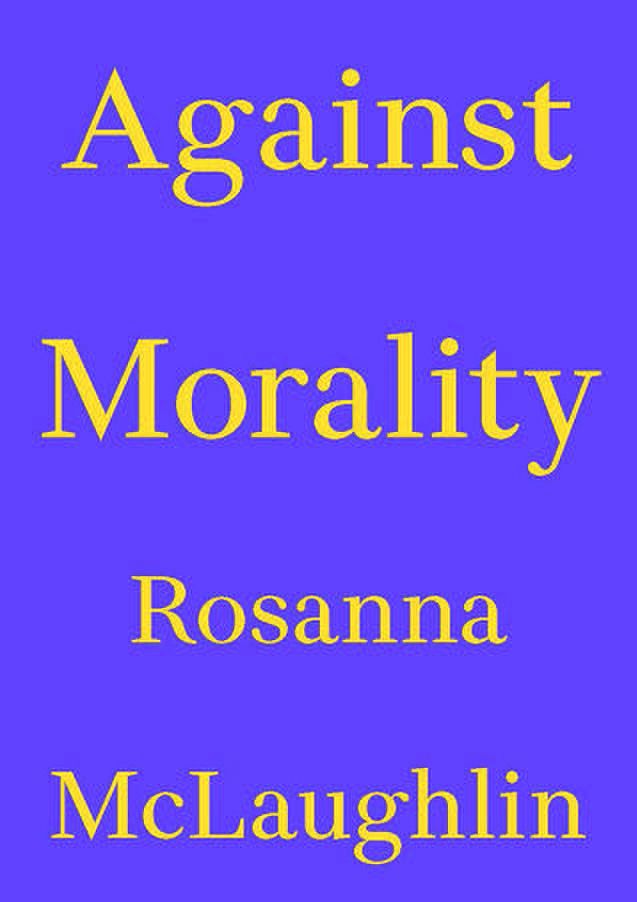
Against Morality
A manifesto against the current moralizing trend in the arts.
Should art be determined by political ideals? In recent decades art institutions have sought to embody liberal values of universal equality and social justice. This move toward greater inclusivity has borne witness to a countervailing trend: artworks are increasingly scrutinized for their political implications, and artists must take care not to transgress particular moral fault lines.
Examining contemporary exhibitions as well as works of art and film, and the broader cultural reactions to them, Rosanna McLaughlin investigates the consequences of this moralizing approach to creative work. She invites us to rethink the connection between political values and art—and to ask whether a relationship between them should exist at all. In arguing against morality in the arts, McLaughlin lays the groundwork for a more expansive concept of difference in twenty-first-century art making.
"What if ambivalences were seen as productive, and not a danger to erase? Would we not begin to know ourselves better? What is it that we are so afraid of finding out? Art is a testing ground for ideas, a means of reaching. What a shame, if we use the space it offers to destroy it entirely."
Rosanna McLaughlin is a writer based in East Sussex and the author of Double-Tracking: Studies in Duplicity (2019) and Sinkhole (2023). Her writing on art and culture has featured in ArtReview, Frieze, Granta, The Guardian, and The White Review, among other publications. Between 2021 and 2023 she was co-editor of The White Review.
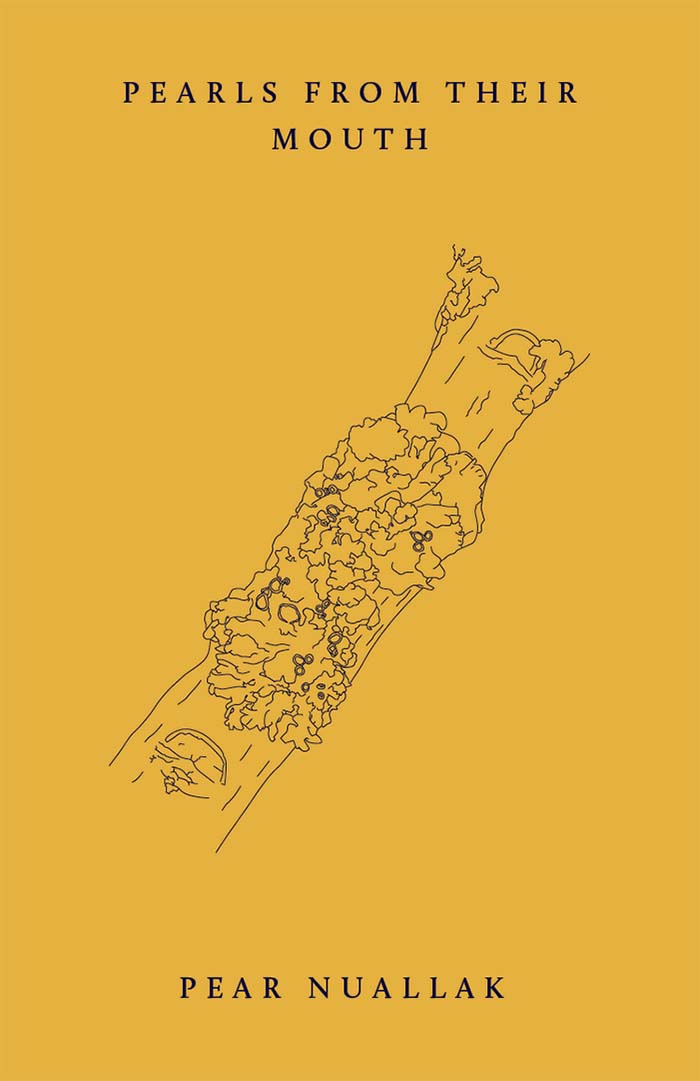
Pearls from Their Mouth
This book is built of stories and provocations—like the birth of a pearl, it transforms that which irritates, layer by layer.
Through speculative fiction and critical essays, Pear Nuallak explores what happens when messy, desiring bodies collide with the hard edge of power. The world’s neat categories are unmade and rewritten, revealing that racial capitalism’s myths are just as much fantasies as Thai bird princesses and transgender magic.
Moving playfully across folktale, horror, satire and critique, Nuallak examines how different beings are formed politically, bodily and emotionally. We discover interdimensional fungi resisting colonisation, queer monsters living on Hampstead Heath, and a mysterious canal running through the ruins of capitalism into interstitial realms. We test the borders of queer diasporic nationalism and take apart the racially melancholic memoir. In this fiery yet delicate collection, we aren’t bound by truth, but flow with it into new worlds.
Pear Nuallak is a visual artist and writer from London. They run community art workshops and co-organise a queer social hub with the Black Cap Community Benefit Society. Their writing has been published in The Dark and Interfictions. Pearls from Their Mouth is their first book.

It begins in your bank and extends to your throat
This text begins with the mishearing of a word. It starts from the place of inconvenience and unravels a hearing not contained within one fixed conversation. A hearing that has been expanded into a writing that begins in your bank and extends to your throat when its language heard writes itself into and onto the muscles.
It begins in your bank and extends to your throat ruminates on how digital algorithms turn words into capital, disciplining language and the body. Its writing explores how search engines link profitability to vocabularies and how productivity dictates posture, raising whether we can separate language and our bodies from economic structures.

Witch: Anthology
An exploration of the Witch, as radical archetype, in ancient and contemporary life.
An adult woman haunted by her childhood muses on the foster system, institutions, and the medieval tale of a girl given to a witch. A genderqueer Brooklynite learns of their past life as a murdered sorceress. An uptight participant at a Northern California witch camp finds community in the kitchen. A professor uses magic to help students under attack by right-wing politicians.
In this collection of manifesto, poetry, playscripts, and prose, the archetype of the Witch is honored and unpacked, poked and prodded, owned and othered. From work centered in antiquity to writing which illustrates how primordial occult energies continue to enliven our world today, WITCH: Anthology lays bare a wilderness of myth, magic, trickery, and power swarming beneath the surface of contemporary life.
With work from CAConrad, Edgar Fabián Frías, Amanda Yates Garcia, Ashley Ray, Brooke Palmieri, Yumi Sakugawa, Kai Cheng Thom, Ariel Gore, Myriam Gurba, Fariha Róisín, and many others.

Writing on Raving
McKenzie Wark, Zoë Beery and 1 more
Writing on Raving is the definitive mix of voices from the Brooklyn underground rave scene and beyond, providing fresh language for the shared and infinitely varied experience of dancing through the night until the morning.
New York rave culture is having a moment. The music, mostly, is techno, certain flavors of which became the soundtrack to a dancefloor culture that is queer in a different way to house music centered gay nightlife. Wark, Mak and Beery want to document and annotate and celebrate, but also critique, this world in the making. Writing on Raving centers the New York scene, but isn't limited to it.
This is a book for all of those who need the rave. Who need to dance. Who have at some point needed that beat in their lives. This is a book for all those who have journeyed through the night, through sound, through movement, through chemistry, into other places, other times, other encounters.
This seeking gives us hours, years, on the dance floor to think about why we rave, to locate these reasons in our bodies and the space around us. But the rave is not the place to articulate them. It is too loud; our friends are too distracted, or too high. At the afters, tired and drained and covered in schmutz, we think some more. We look around at our raver friends, and wonder: How did we get here? What happened to us? What is this tentacular, thrashing, swelling thing that we all made together? That thing that is now slumped and aching and coming down now into our fragmentary, singular lives
Between all of us, there are many answers to such questions. Wark, Mak and Beery have gathered their favorite ones to share in this first-ever anthology of writing on raving.
McKenzie Wark is a writer and scholar based in New York City. She is the author, among other things, of Raving (2023) and Life Story (2024).
Geoffrey Mak is the author of Mean Boys: A Personal History (Bloomsbury, 2024).
Zoë Beery is a freelance journalist based in Brooklyn, and a nightlife harm reduction organizer at parties and festivals in the U.S. and Europe.
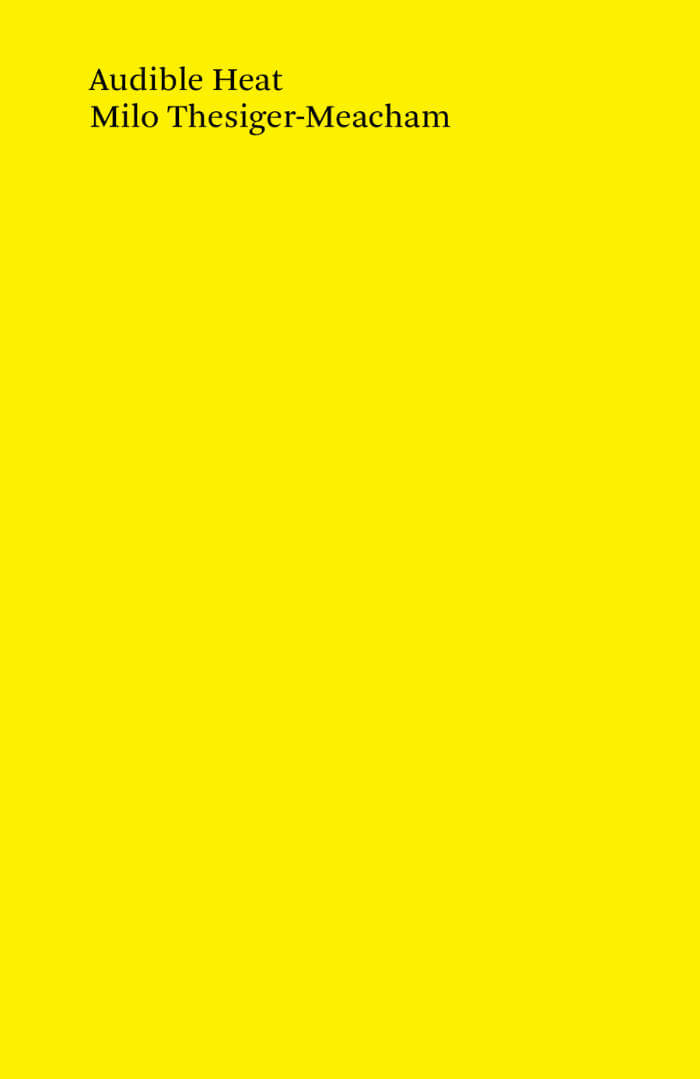
Audible Heat
A manuscript shortlisted for the inaugural edition of the Prototype Prize, 2024, a eulogy to the sonic influence and cultural inferences of the sound of the cicada. A train of thought on the multiform significations and significance of the cicada’s buzz and hum; a dissection and deconstruction of the insect as emblem; a wild and associative suite of fragments on the evocations of background noise when brought to the fore.
Milo Thesiger Meacham’s Audible Heat is a rich, meditative ecotone of ideas; a nimble and associative work of essayism that aims to map a reticulated cultural biography of the sound of the cicada. Equal parts academic argument, travelogue, and critical collage, this synthesis of ideas pulls upon a wide-ranging bibliography of materials to examine the omnipresent sound of the cicada as ‘audible heat’ throughout human history and culture. Herein, this climatic sound acts as a conduit between ecology, identity and mortality, and the cicada’s sonic inference emerges as a codification of the unknown and unfamiliar—as a spiritual weathervane in desert settings—and as a means of teasing out the sensorial limits of human understanding.
Thesiger-Meacham sits himself in a field of enquiry and in dialogue with voices various, ancient, and modern, such as Douglas Yanega of the University of California, folk musician Matthias Loibner, and Gene Kritsky, developer of Cicada Safari, a public app which tracks the mass emergence of periodical cicadas across North America, in a transversal network of interlinked, informational nodes.
Herein, we’ve the sonic-induced anxieties of 17th, 18th and 19th-century colonists in Northeastern America—notably the largely unknown career of entomologist Margaretta Morris—and the apocalyptic premonitions of the indigenous Wampanoag; Greek tongue twisters; the poetry of Ibn Quzmān and Harry Crosby; African American mathematician Benjamin Banneker’s lost wooden clock; Socrates' fear of dehydration; the geopolitical tensions embedded in Southern Spain as Al-Andalus (سُلَدْنَألا); Plato’s Phaedrus; a history of the hurdy-gurdy; Geronimo’s hatred of telegraphy; contemporary and historical entomologies; the slurred, slow body language of Clint Eastwood; insects on the film sets of Sergio Leone's Spanish Westerns; squinting; tanning; metamorphosis; acts of violence in Once Upon a Time in the West (1968); military reenactments of the Battle of Marathon (490 BCE); the botanist Donald C. Peattie’s existential dread; ancient cooking implements; riverside trees hills, and their symmetric reflections in still water…
All ideas emanating from the acoustical atmospherics inherent to the cicada’s song.